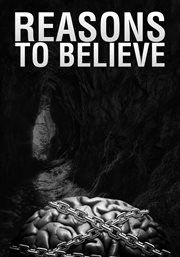Denying to the grave Why we ignore the facts that will save us
Book - 2017
Why do some parents refuse to vaccinate their children? Why do some keep guns at home, despite scientific evidence of risk to their family members? And why do people use antibiotics for illnesses they can't possibly alleviate? When it comes to health, many people insist that science is wrong, that the evidence is incomplete or inconclusive, and that unidentified hazards lurk everywhere to harm us.
- Subjects
- Published
-
Oxford ; New York :
Oxford University Press
[2017]
- Language
- English
- Main Author
- Other Authors
- Physical Description
- x, 312 pages ; 25 cm
- Bibliography
- Includes bibliographical references and index.
- ISBN
- 9780199396603
- Acknowledgments
- Introduction
- 1. Conspiracy Theories
- 2. Charismatic Leaders
- 3. Confirmation Bias
- 4. Causality and Filling the Ignorance Gap
- 5. Avoidance of Complexity
- 6. Risk Perception and Probability
- Conclusion
- Notes
- About the Authors
- Index

